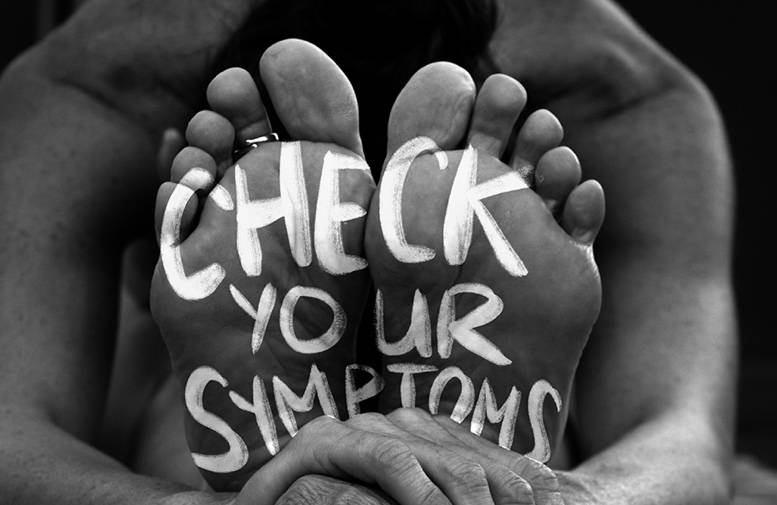Iron Deficiency in those with chronic heart failure
Around 6.5 million people have experienced chronic heart failure in Europe and around 5 million in the USA1. Around 50% of those living with heart failure have some form of iron deficiency, with and without anaemia2,3.
If you are suffering from chronic heart failure, there are many reasons why you may also be iron deficient.
- You may be absorbing less iron from your food into your bloodstream as your gut may be inflamed4
- You may not have enough iron in your diet4
- Drug interactions may reduce the amount of iron you absorb4
- Medications may also be causing internal bleeding which means that more iron is lost from your body than normal4

What is chronic heart failure?
When a heart becomes larger or thicker, it loses its ability to squeeze and relax properly, struggling to keep up with its role of pumping blood around the body. Eventually, fluids will build up in the lungs and heart. This is known as chronic heart failure (CHF). Around 5 million people in the USA1 have CHF and the risk increases with age, particularly after the age of 751,5. Major symptoms of this clinical syndrome, which causes a build-up of fluid in both the lungs and heart, include:
- Breathlessness
- Swelling in feet, ankles, legs, or tummy
- Extreme fatigue and lethargy
- Rapid weight gain
Warning signs of iron deficiency in chronic heart failure
Reduced physical function, impaired wellbeing, and decreased quality of life6,7,8 are changes you may notice with both chronic heart failure and iron deficiency. The following symptoms may point specifically to iron deficiency:
- Fatigue
- Looking pale9
- Shortness of breath10 and a racing heart11
- Sore tongue or dry mouth12,13
- Cracks at the corners of your mouth14
- Mouth ulcers15
- Cold intolerance or cold hands and feet16
- Craving to eat non-food items (pica/ pagophagia)17,18
- Restless leg syndrome (RLS)19,20
- Hair loss21
- Brittle22 or spoon-shaped nails23
- Headache24
- Increased susceptibility to infections25
- Dizziness26, irritability27 and loss of concentration27
My story: living with chronic heart failure and iron deficiency

Lena, 68, retired.
“I’d noticed that I needed to take things a bit slower, but my heart attack was still a big shock. I was so relieved to be OK that my diagnosis with heart failure didn’t sink in to start with. Although I took the doctor’s advice on board and made some changes, including cutting back on cake and alcohol and doing some gentle walks, I just couldn’t shake this dull feeling in my head. I seemed to be physically and mentally slowing down.
My husband said I was getting grumpy, so at my next check-up, I mentioned how tired I had been feeling. The doctor suggested a blood test which showed that I didn’t have enough iron, for various reasons. Now I’m being treated for iron deficiency and I’m eating more iron-rich food. I feel less groggy and more positive about the future.
However, I have to be realistic about what I can and can’t do now. We have friends over, but I can’t chat away like I used to because I get breathless. But if I pace myself, we still have fun. I also know I will need to schedule in a rest after any activity – no dashing from one thing to the next anymore!”
Symptom checker
Don’t ignore or confuse the warning signs of iron deficiency. Take our quick and easy test to pinpoint any symptoms of iron deficiency.


Talk to a doctor
Are you experiencing symptoms of iron deficiency. Are you worried you may have low iron levels? Get guidance on what to ask your doctor for a checkup or treatment.
- Tendera M. Epidemiology, treatment, and guidelines for the treatment of heart failure in Europe. Eur Hear J Suppl. 2005;7(Suppl J):J5-J9. doi:10.1093/eurheartj/sui056.
- Ebner N, von Haehling S. Iron deficiency in heart failure: a practical guide. Nutrients. 2013;5(9):3730-9. doi:10.3390/nu5093730.
- Klip IT, Comin-Colet J, Voors A a, et al. Iron deficiency in chronic heart failure: an international pooled analysis. Am Heart J. 2013;165(4):575-582.e3. doi:10.1016/j.ahj.2013.01.017.
- Mcdonagh T, Macdougall IC. Iron therapy for the treatment of iron deficiency in chronic heart failure : intravenous or oral ? Eur J Heart Fail. 2015
- Chronic heart failure in adults: diagnosis and management. 2018, available at https://www.nice.org.uk/guidance/ng106.
- Jankowska E a, Rozentryt P, Witkowska A, et al. Iron deficiency: an ominous sign in patients with systolic chronic heart failure. Eur Heart J. 2010;31(15):1872-80. doi:10.1093/eurheartj/ehq158.
- Okonko DO, Mandal AKJ, Missouris CG, Poole-Wilson P a. Disordered iron homeostasis in chronic heart failure: prevalence, predictors, and relation to anemia, exercise capacity, and survival. J Am Coll Cardiol. 2011;58(12):1241-51. doi:10.1016/j.jacc.2011.04.040.
- Chronic heart failure. NICE Clin Guide l. 2010;108:1-119.
- Stoltzfus R, Edward-Raj A. Clinical pallor is useful to detect severe anemia in populations where anemia is prevalent and severe. J Nutr. 1999;129(May):1675-1681.
- Milman N. Postpartum anemia I: definition, prevalence, causes, and consequences. Ann Hematol. 2011;90(11):1247-53. doi:10.1007/s00277-011-1279-z.
- Anand IS Anemia and chronic heart failure implications and treatment options. J Am Coll Cardiol. 2008 Aug 12;52(7):501-11. doi: 10.1016/j.jacc.2008.04.044.
- Baird IM, Dodge OG, Palmer FJ, Wawman RJ. The tongue and oesophagus in iron-deficiency anaemia and the effect of iron therapy. J Clin Pathol. 1961;14:603-9.
- Osaki T, Ueta E, Arisawa K, Kitamura Y, Matsugi N. The pathophysiology of glossal pain in patients with iron deficiency and anemia. Am J Med Sci. 1999;318(5):324-9.
- Stein J, Hartmann F, Dignass AU. Diagnosis and management of iron deficiency anemia in patients with IBD. Nat Rev Gastroenterol Hepatol. 2010;7(11):599-610. doi:10.1038/nrgastro.2010.151.
- Scully C. ABC of oral health: Mouth ulcers and other causes of orofacial soreness and pain. Bmj. 2000;321(7254):162-165. doi:10.1136/bmj.321.7254.162.
- World Health Organization. Iron deficiency anaemia. Assessment, prevention and control: A guide for programme managers.; 2001.
- Simpson E, Mull JD, Longley E, East J. Pica during pregnancy in low-income women born in Mexico. West J Med. 2000;173(1):20-25.
- Lacey EP. Broadening the perspective of pica: literature review. Public Health Rep. 1990;105(1):29-35.
- Sun ER, Chen CA, Ho G, Earley CJ, Allen RP. Iron and the restless legs syndrome. Sleep. 1998;21(4):371-7.
- Wang J, O’Reilly B, Venkataraman R, Mysliwiec V, Mysliwiec A. Efficacy of oral iron in patients with restless legs syndrome and a low-normal ferritin: A randomized, double-blind, placebo-controlled study. Sleep Med. 2009;10(9):973-5.
- Stein J, Dignass A. Management of iron deficiency anemia in inflammatory bowel disease–a practical approach. Ann Gastroenterol. 2012;26:1-10.
- Cashman MW, Sloan SB. Nutrition and nail disease. Clin Dermatol. 2010;28(4):420-5. doi:10.1016/j.clindermatol.2010.03.037.
- Pamuk GE, Mehmet Serif Top, Mehmet Sevki Uyanık, et al. Is iron-deficiency anemia associated with migraine? Is there a role for anxiety and depression? Wien Klin Wochenschr. 2015:1-5. doi:10.1007/s00508-015-0740-8.
- Dhur A, Galan P, Hercberg S. Iron status, immune capacity and resistance to infections. Comp Biochem Physiol A Comp Physiol. 1989;94(1):11-9.
- Paterson JA, Davis J, Gregory M, et al. A study on the effects of low haemoglobin on postnatal women. Midwifery. 1994;10(2):77-86.
- Radlowski EC, Johnson RW. Perinatal iron deficiency and neurocognitive development. Front Hum Neurosci. 2013;7:1-11.
- Albacar G, Sans T, Martín-Santos R, et al. An association between plasma ferritin concentrations measured 48 h after delivery and postpartum depression. J Affect Disord. 2011;131:136-42. doi:10.1016/j.jad.2010.11.006.

